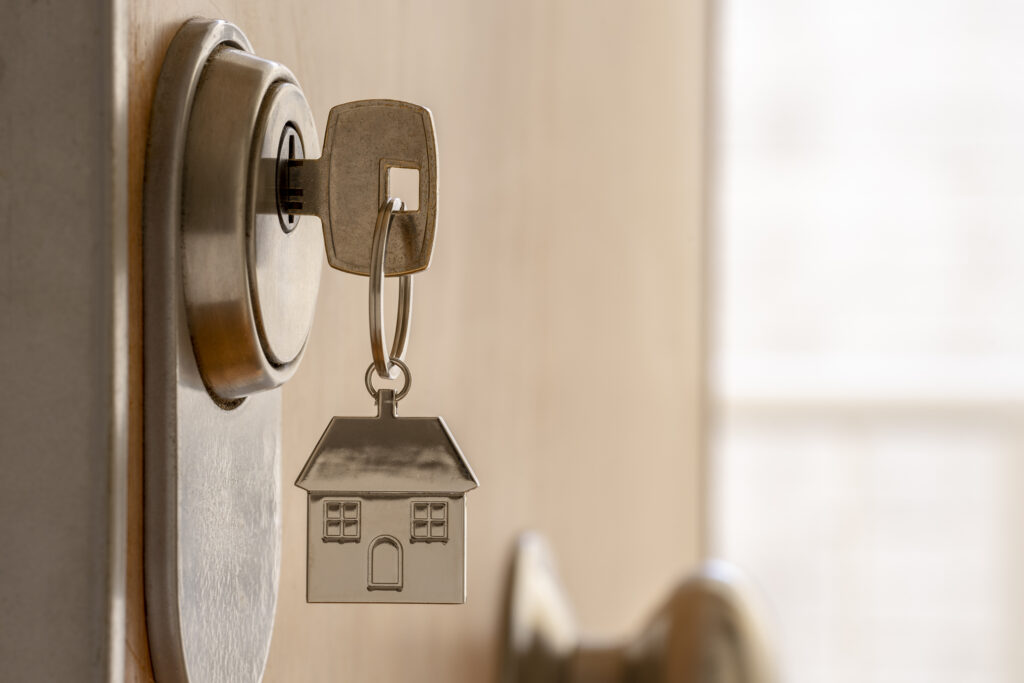
Right to Buy involves the tenant of a council property who has the right to buy that property. The Right to Buy scheme was first introduced in 1980 by Margaret Thatcher’s Conservative government as a way for council tenants to buy the council house they lived in at a discounted price.
The scheme has gone through some changes over the years but continues to offer a route on to the property ladder for social housing tenants who otherwise may not be able to purchase their own home. Right to Buy is still available in England and Northern Ireland but was abolished in Scotland in 2013 and Wales in 2017.
Most tenants in England are eligible to buy their council home if they meet the following criteria:
- The property is their only or main residence.
- The buyer is a secure tenant.
- The buyer has a public sector landlord such as local council or housing association for three years (which don’t need to be consecutive.)
- The property is self-contained having its own kitchen living room and bathroom.
The Discount
This depends entirely on how long you have lived in the property type of property and its value.
The Government has a calculator to assist in working out the discount you may be eligible for.
A recent change was implemented on the 21st November 2024 which reduced the amount of discount offered. The maximum discount you can get is whichever of the following is lower:
- 70% of the value of your property.
- The maximum discount for your region.
Your own sale of your Right to Buy property
Always remember that if you want to sell your property within 5 years of your purchase taking place you have to repay some of the discount on a proportional basis. This does not mean you cannot sell the house, it just means that the local council or party from whom you purchased has a right to ask for repayment of all or part of the discount. Once the 5 years has elapsed then you are free to sell the property without repaying any of the discount you received.
Also should you wish to sell the property within 10 years of your buying it, you must first give to your local council or party from whom you purchased first refusal to purchase the property back from you. They have 8 weeks to agree to purchase the property so plan ahead and allow for this delay before actioning any sale on the open market.
Should the local council wish to buy the house back from you then the sale price will be the agreed market value and should this not be agreed then the District Valuer will advise on the correct value to be applied. If the offer to buy back is refused by the local council or original owner then you may proceed to sell on the open market without limitation.
The benefits of Right to Buy
- The discounts can make it cheaper in comparison to a private sale.
- You have lived in the property and know the area so there won’t be any hidden surprises once you have purchased.
- The longer you’ve been renting your council home the bigger the discount.
- You have the stability of owning your home.
- You don’t always need to have a deposit.
- You won’t then need to pay rent with your monthly payments to the mortgage lender going instead in the investment of an asset of your own that you can pass on to children or grandchildren as inheritance.
- Once owned for five years you can sell it on without having to pay back the discount and gain from the profit if the property has gone up in value.
Issues to consider
- Your discount amount may be less if your landlord has spent money on building or maintaining your property.
- With current applications made after 21st November 2024, the discount amount will be significantly lower (between £16,000 and £32,000 depending on where you live). This means that you may need to contribute to a deposit and it may be more difficult than previously to get a mortgage.
- You will be solely responsible for any bills relating to the property and this includes utilities any leasehold service charges and you will now be responsible for the costs of repair and maintenance.
- Even if you don’t need a deposit, you should note that there can be other fees and charges associated with taking out a mortgage such as arrangement fees, valuation fees and broker fees. Make sure to factor these in and consider all the costs involved.
- Your home may be repossessed if you don’t keep up with your monthly mortgage repayments and your asset will be lost.
How we can help
If you would like further information, please contact any of the conveyancing team on freephone 0800 011 6666 or via email at legal@timms-law.com.




